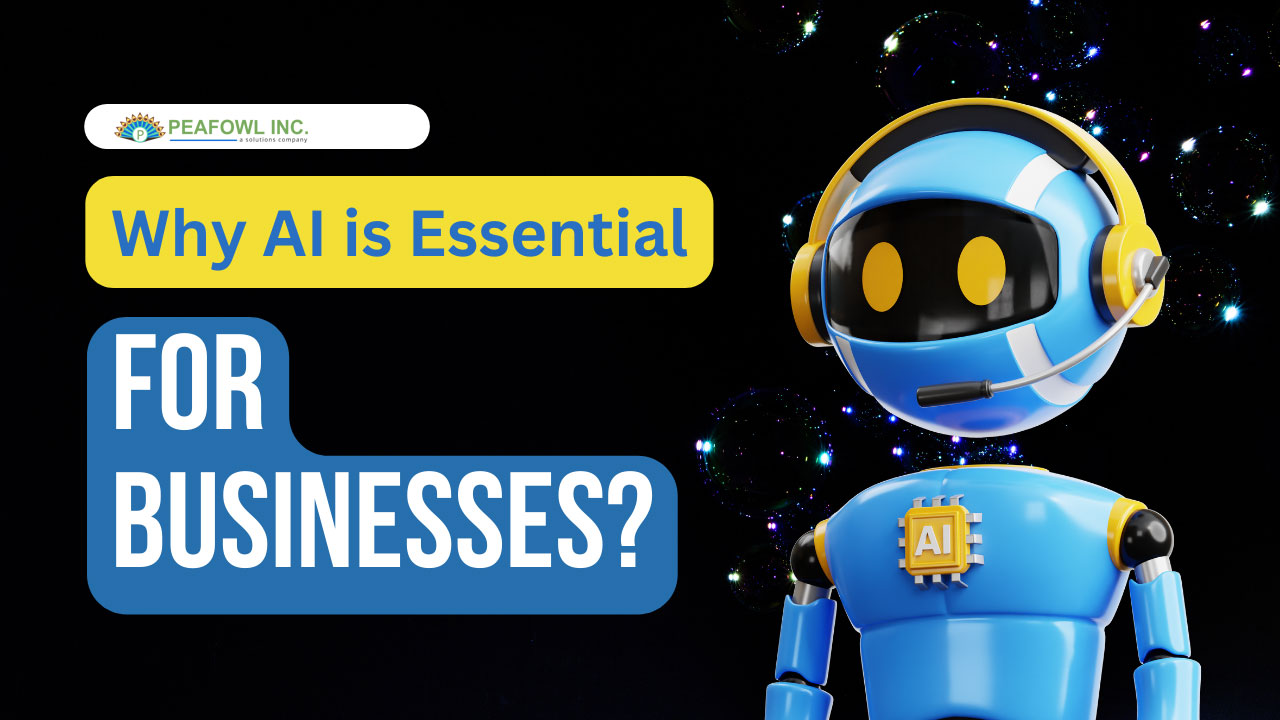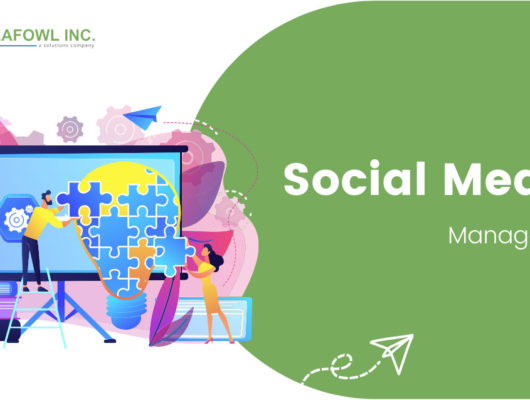Today, we live in a hyper-connected world that has changed our lives. One technological tool that is redistributing everyone’s roles is artificial intelligence. Artificial intelligence has become essential in everyone’s life, but not only that. Companies also use this type of technology to provide a high-value-added service.
From robots, connected objects, virtual assistants, and more, our environment is more automated than ever before; this is only possible because of these modern machines. In this article the experts at Peafowl INC has discussed the various factors regarding the importance of artificial intelligence for the businesses.
Everyone is wondering, what is artificial intelligence?
Artificial intelligence is all machines or tools that replace humans in specific tasks. It also makes it possible to improve these tasks based on information gathered through iteration.
Therefore, artificial intelligence is a tool whose main task is analysis, automation, improvement, and prediction. The goal is not to replace humans but to improve the needs to ensure comfort in our environment and thus eliminate various repetitive tasks we encounter daily.
Today, different devices and services use artificial intelligence. Among them are voice assistants like Google Home or Amazon Alexa and recommendation algorithms like Deezer, Spotify, Netflix, and even Facebook chatbots.
Using artificial intelligence in the corporate world
Artificial intelligence is essential for most sectors in the coming decades, including production, customer relations, and logistics. According to the Leadership in the Age of AI study, 3 out of 4 companies today say that using AI has transformed how they do business and 90% report measurable benefits. Therefore, artificial intelligence in companies has become necessary. It makes improving a company’s performance and productivity possible by automating tasks and processes that were previously human resources.
Artificial intelligence in customer relations
Virtual assistants like Siri or even Facebook chatbots have allowed businesses to respond to their customers’ needs instantly and thus satisfy them. This instant messaging allows you to get increasingly personalized customer service.
Here are some advantages of this type of AI:
- Improve customers’ access to information thanks to a search engine-optimized chatbot.
- It is possible to receive better-personalized advice from customers to support them in their purchasing process.
- Thanks to the tools, ease of concluding whether a sale with a customer or any other service.
- Assisting customers with all types of orders, thus maintaining their loyalty by improving the entire consumer journey.
In addition to tools that make it possible to answer various customer questions, it also make it possible to improve the analysis of consumer data collection. Therefore, this procedure aims to understand profiles better and thus target customers in the best way to provide recommendations or target advertising to them.
Facebook, for example, quickly understood this aspect of AI, as it is currently developing “deep learning.” It’s a technology that allows us to deliver better content to customers in different news feeds, but not only that. Deep learning also enables better targeting of ads and, thus, the ability to predict future consumer behavior.
As we have seen, AI represents many advantages for the world of work. However, we should pay attention to the risks it may generate. The risks that artificial intelligence can cause.
According to a study conducted by McKinsey, “60% of occupations could be affected by automation” within ten years. For example, IT careers will be increasingly in demand.
Therefore, all sectors will need specialists in artificial intelligence and robotics. Therefore, trades and professions must be invented to meet needs, and others will disappear. Thanks to using machines to perform tasks initially performed by humans, some professions will disappear. They include laborers, handlers, building finishers, mechanics, maintenance workers, and cashiers. AI will then generate a high rate of unemployment. Another disadvantage of artificial intelligence is the high cost of equipment that requires expensive upkeep and maintenance.
To maximize the benefits of AI while mitigating these drawbacks, companies need to carefully plan their AI strategies, invest in ethical AI development, ensure data privacy and security, and provide training and support for their workforce to adapt to the changing landscape.







